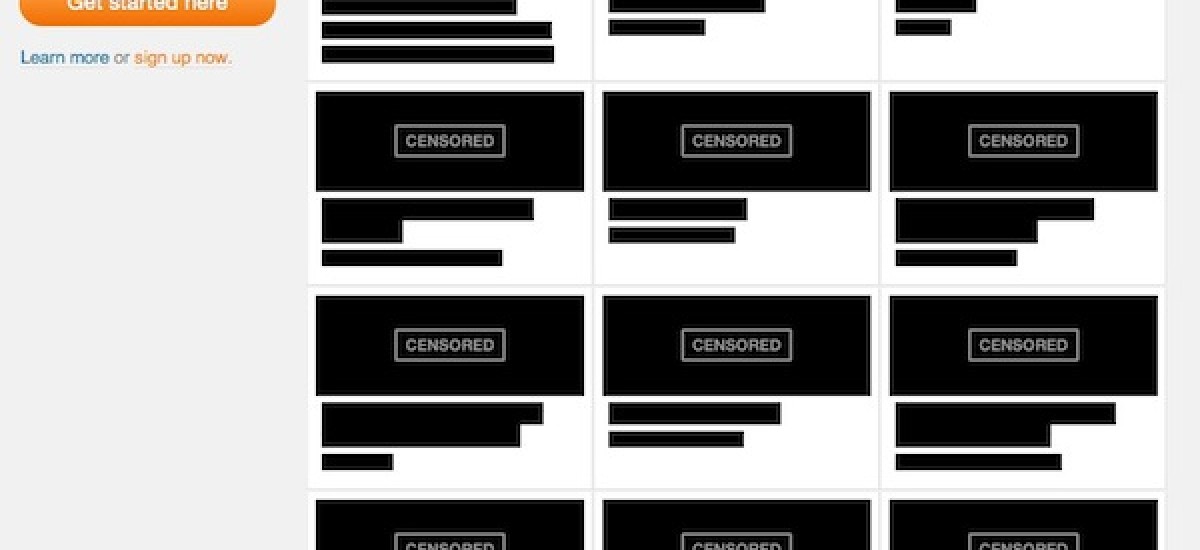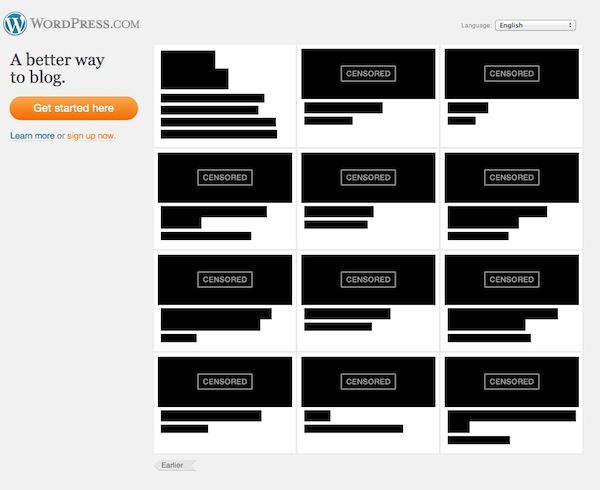There are a lot of websites in the US that have gone black to protest against the proposed Stop Internet Piracy Act (SOPA) and the Protect IP Act (PIPA). Wikipedia has gone to the extent of taking down its site for the day, and lists its reasons here. Action across such a large number of key internet companies based in the US is unprecedented, and demonstrates clear opposition to the two pieces of legislation. The White House has itself distanced itself from both in their current form. And yet, they remain for consideration by lawmakers. As Wikipedia notes,
…neither SOPA nor PIPA is dead. On January 17th, SOPA’s sponsor said the bill will be discussed in early February. There are signs PIPA may be debated on the Senate floor next week. Moreover, SOPA and PIPA are just indicators of a much broader problem. In many jurisdictions around the world, we’re seeing the development of legislation that prioritizes overly-broad copyright enforcement laws, laws promoted by power players, over the preservation of individual civil liberties.
Neither SOPA nor PIPA affect Sri Lankans today. But if passed, they can contribute to web censorship on a massive, global scale, led by the US entertainment industry. The clear dangers of the legislation to censor existing content on websites and key social media platforms is brought out in the following video. As it notes, the indirect effects of these acts, if passed into law, can quite literally mean the end of the Internet as we recognise it today. Worse, such legislation in the US can spark off similar legislation in other, more repressive regimes. This domino effect could spell the end of not just online dissent, but all dissent given how much of it today is published on, produced for, mediated through, disseminated, archived and engaged via the web and the Internet.
Few may recall that Sri Lanka also tried to bring about its own variant of SOPA and PIPA in 2008. Called the Private Television Broadcasting Station Regulations of 2007, the Government attempted to pass it into law in October 2008. It’s so alike SOPA and PIPA in spirit and form that it’s uncanny. At the time, I wrote a detailed brief of how detrimental this bill was for freedom of expression online, that fed into the affidavit of a case lodged in the Supreme Court – one of many – that challenged the proposed Bill. As noted in it,
- The stipulation for all ‘broadcasters’ to enter into an ‘agreement’ that is unspecified in the Gazette, with the Internet Service Provider who provides access to the web and Internet is a draconian measure pointedly designed to curtail and block independent and free production, access and transmission of, inter alia, video content over the Internet and the web.
- This is particularly concerning since, to expand on what was flagged in Point 4 of this document, video over the Internet also encourages and facilitates easy audience participation in the form of text and video feedback and comments. Holding ‘broadcasters’ in Sri Lanka, including ISPs, responsible for not just user generated content, but also user generated comments to content published from other sources, is a regulatory nightmare and technically impossible to comply with.
- The lack of any clearly defined framework for the nature and scope of the ‘agreement’ enumerated in Regulations 9 (b) and 10 (b) has disturbing and negative implications for the rights of all wired and wireless broadband customers in particular – including all ADSL, 3G mobile telephony and 3G HSPA mobile broadband modem users – as well as all citizens, since those who may not be a customer of an ISP could still use the internet to disseminate video productions (e.g. video content that is uploaded through a cybercafé).
SOPA and PIPA, if allowed to pass in the US, will under the guise of progressive legislation contribute to precisely this sort of regulatory control in the US. It will occur, as flagged in the video above, to a point of absurdity. For example, a copyright violation claim over the soundtrack of a song on the domestic video of a cute cat playing with a ball of wool, uploaded to the web, can result in the entire website being blocked (think about YouTube).
As the Globe and Mail notes, serious concerns with the bills include, inter alia, the fact that,
…. provisions of PIPA and SOPA allow the government – and, in some cases, the individual copyright holders – to compel online payment services, ad networks and search engines to stop doing business with or listing targeted websites. And unlike other laws that focused on websites involved primarily in piracy, the bills expand the focus to include sites on which any infringing content is found, no matter how minuscule. As such, American users of cloud storage or video hosting sites could find the entire site, along with their own content, suddenly much more difficult to access, because a single user uploaded a piece of copyrighted content.
It comes down to this. The bills are at present of greatest concern to those in the US. Yet their potential to influence bad legislation globally, and undermine key websites and social media platforms that are an integral part of democratic change, revolt, dissent and debate is very high. This is a cogent example where what the US preaches, it seems it is unwilling to practice – the freedom of expression it promotes, along with the circumvention technologies it directly supports are at complete odds with the thrust of SOPA and PIPA.
I’ve gone ahead and signed a petition on WordPress.org against the SOPA and PIPA.
I strongly urge you to do the same.


